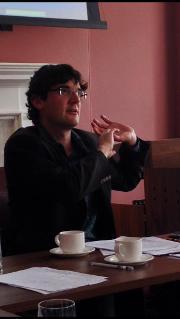Public-private collaboration in the governance of AI
Artificial intelligence (AI) and machine learning (ML) have seen impressive developments in the last decades. Think about Google’s DeepMind defeating Lee Sedol, the best human player of Go, with their program AlphaGo in 2015. The latest version, AlphaZero, is remarkable because it relied on deep reinforcement learning to learn how to play Go entirely by itself from scratch: with only the rules of the game, through trial and error, and playing millions of games against itself. Machine learning algorithms have a range of other practical applications, from image recognition in medical diagnostics to energy management. (more…)







